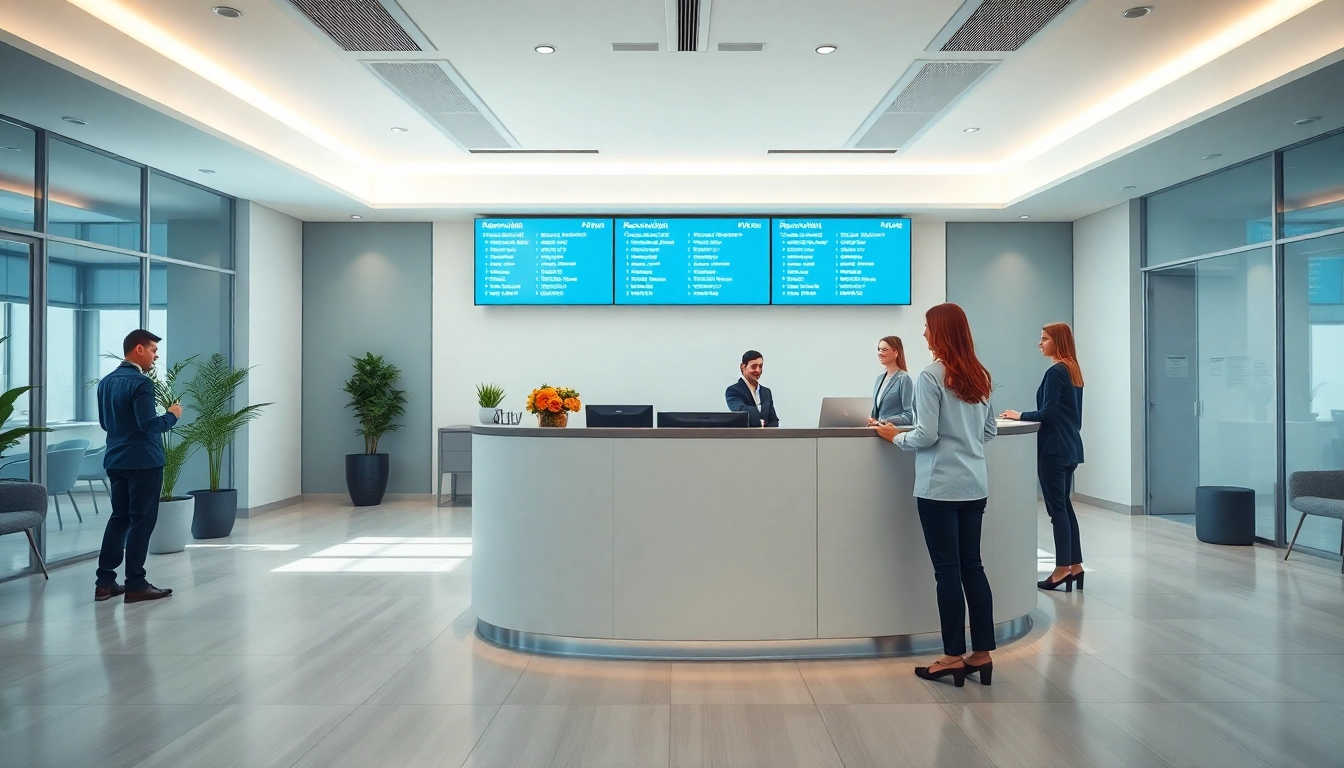
Understanding Reservation Services
In today’s fast-paced world, efficient Reservation Services have become essential for businesses across various sectors, including hospitality, entertainment, and healthcare. These services streamline the booking process, leaving both customers and businesses satisfied. As digital transformation continues to reshape consumer expectations, understanding different aspects of reservation services becomes crucial for success.
What are Reservation Services?
Reservation services encompass various systems and technologies designed to facilitate the booking of services or accommodations. This includes online platforms that allow customers to book tables at restaurants, schedule appointments, or reserve hotel rooms with ease. Reservation services help automate the process and reduce the likelihood of double bookings, ensuring a smoother experience for all parties involved.
Importance of Effective Reservation Services
Effective reservation services act as a bridge between businesses and customers. They enhance operational efficiency, improve customer experience, and ultimately drive revenue. In a competitive landscape, having a robust reservation system doesn’t just provide convenience—it’s a strategic advantage. Customers are more likely to engage with a business that offers an easy-to-navigate booking system, thereby improving brand loyalty and satisfaction.
Key Features of Reservation Services
Reservation services are equipped with a variety of features that cater to both business needs and customer preferences. Key features often include:
- User-Friendly Interface: A straightforward booking interface is essential for enhancing customer experience, allowing users to navigate easily.
- Real-Time Availability: This feature displays up-to-date availability, allowing customers to make informed decisions and reducing conflicts.
- Automated Confirmation: Customers receive instant confirmations after completing their reservations, which enhances trust and reduces no-show rates.
- Payment Processing: Secure payment gateways integrated within the system facilitate seamless transactions.
- Reporting and Analytics: Business owners can access data that helps inform decision-making and identify trends.
Types of Reservation Services
Online Reservation Systems
Online reservation systems have grown significantly in popularity due to their convenience and accessibility. Users can make reservations from the comfort of their homes or on-the-go via mobile devices. These systems can be integrated with websites, allowing businesses to expand their reach and enhance their online presence.
Phone-Based Reservation Services
Despite the rise of online booking, phone-based reservation services remain relevant, especially in sectors such as healthcare and hospitality. These services are often essential for clients who prefer personal interaction or have specific queries that require immediate clarification. Effective phone handling is critical, as it can shape the customer’s initial impression of the business.
Integrated Reservation Solutions
Integrated reservation solutions combine various functionalities into a single, cohesive platform. This might include features for managing reservations, payments, and customer relationship management (CRM). By streamlining operations, businesses can reduce administrative burdens and ensure a cohesive experience for their customers.
Benefits of Using Reservation Services
Streamlined Operations
One of the primary advantages of implementing reservation services is the considerable reduction in operational complexities. Businesses can automate many routine tasks—like booking confirmations, reminders, and no-show notifications—freeing up staff to focus on delivering quality service. This leads to optimized workforce management and improved productivity.
Improved Customer Satisfaction
Customer satisfaction is integral to a successful business, and effective reservation services play a vital role in this. By simplifying the booking process, minimizing wait times, and ensuring immediate confirmation, businesses can enhance customer experiences. Satisfied customers are more likely to return and recommend the service to others, creating a positive feedback loop.
Data-Driven Decision Making
Reservation services provide valuable insights into customer behaviors and preferences through data analytics. By tracking trends and patterns, businesses can make informed decisions, from menu adjustments in restaurants to resource allocation in hotels. This can lead to critical operational improvements and marketing strategies tailored to customer needs.
Challenges in Implementing Reservation Services
Technical Integration Issues
While the benefits of reservation services are clear, integrating these systems into existing infrastructures presents challenges. Often, businesses may face compatibility issues with legacy systems or struggle with data migration. To address this, businesses should prioritize systems that offer robust technical support and adaptable APIs, making integration less disruptive.
User Adoption and Training
Resistance to change can hinder the successful implementation of reservation systems. Employees may be accustomed to traditional methods, which can make adopting new technologies difficult. To combat this, comprehensive training programs should be established, emphasizing the benefits of new systems and how they improve job performance and customer interaction.
Maintaining Data Security
As businesses increasingly handle sensitive customer information, maintaining data security is paramount. Reservation service providers must invest in robust security measures, including encryption and compliance with regulations like GDPR. Regular audits and updates to security protocols can further protect against data breaches, instilling customer confidence in the business.
Best Practices for Optimizing Reservation Services
Choosing the Right System
Selecting the appropriate reservation service depends on various factors, including business size, type, and specific operational needs. It is advisable to review multiple providers, seeking solutions that are scalable, customizable, and feature-rich while remaining within budget. Customer reviews and case studies can provide insights into which systems deliver the best service.
Regular System Updates and Maintenance
Keeping reservation systems updated is critical to ensure optimal performance. Providers should have a clear update policy and offer assistance for necessary upgrades. Regularly scheduled maintenance minimizes downtime and enhances security, keeping business operations running smoothly without interruption.
Gathering Feedback for Continuous Improvement
To stay relevant and improve their offerings continuously, businesses should proactively seek feedback from customers and staff. Surveys, focus groups, and direct communication can highlight pain points and suggestions for enhancements. Implementing these suggestions can significantly lead to a more efficient and user-friendly reservation system.